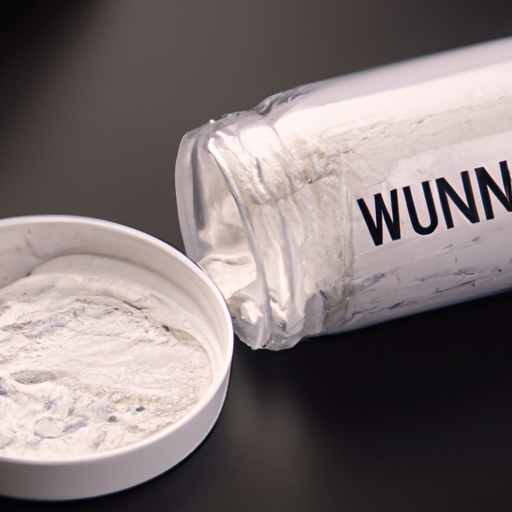
Does Creatine Make You Bloated
-
Contents
- 1 The Science Behind Creatine and Bloating: What You Need to Know
- 2 How to Avoid Bloating When Taking Creatine
- 3 The Pros and Cons of Creatine: Is It Worth the Risk of Bloating?
- 4 What to Do If You Experience Bloating After Taking Creatine
- 5 The Best Types of Creatine to Avoid Bloating: What You Need to Know
- 6 Q&A
Table of Contents
- The Science Behind Creatine and Bloating: What You Need to Know
- How to Avoid Bloating When Taking Creatine
- The Pros and Cons of Creatine: Is It Worth the Risk of Bloating?
- What to Do If You Experience Bloating After Taking Creatine
- The Best Types of Creatine to Avoid Bloating: What You Need to Know
- Q&A
Creatine is a popular supplement used by athletes and bodybuilders to increase muscle mass and strength. It is also used by people who want to improve their performance in the gym. However, many people are concerned about the potential side effects of creatine, such as bloating. In this article, we will discuss whether creatine can make you bloated and what you can do to prevent it. We will also look at the potential benefits of creatine and how it can help you reach your fitness goals.
The Science Behind Creatine and Bloating: What You Need to Know
Creatine is a popular supplement among athletes and bodybuilders, as it has been shown to increase muscle mass and strength. However, many people report experiencing bloating when taking creatine. In this article, we will discuss the science behind creatine and bloating, and what you need to know to make an informed decision about whether or not to take creatine.
Creatine is a naturally occurring compound found in the body, primarily in skeletal muscle. It is synthesized from the amino acids arginine, glycine, and methionine, and is used to produce energy for muscle contractions. Creatine is also found in some foods, such as red meat and fish.
When taken as a supplement, creatine is absorbed into the bloodstream and transported to the muscles, where it is stored as phosphocreatine. This stored form of creatine is then used to produce energy for muscle contractions.
Creatine supplementation has been shown to increase muscle mass and strength, as well as improve exercise performance. However, some people report experiencing bloating when taking creatine. This is because creatine draws water into the muscles, which can cause the muscles to swell and become bloated.
In addition, some people may be more sensitive to the effects of creatine than others. This could be due to differences in body composition, genetics, or other factors.
To reduce the risk of bloating, it is important to drink plenty of water when taking creatine. This will help to flush out excess creatine and reduce the risk of bloating. Additionally, it is important to start with a lower dose of creatine and gradually increase it over time. This will help your body to adjust to the supplement and reduce the risk of bloating.
In conclusion, creatine is a popular supplement among athletes and bodybuilders, as it has been shown to increase muscle mass and strength. However, some people may experience bloating when taking creatine. To reduce the risk of bloating, it is important to drink plenty of water and start with a lower dose of creatine and gradually increase it over time. By following these tips, you can make an informed decision about whether or not to take creatine.
How to Avoid Bloating When Taking Creatine
Creatine is a popular supplement used by athletes and bodybuilders to increase muscle mass and strength. However, it can also cause bloating, which can be uncomfortable and even painful. Fortunately, there are several steps you can take to reduce the risk of bloating when taking creatine.
First, make sure you are taking the correct dosage. Taking too much creatine can lead to bloating, so it is important to follow the instructions on the label. If you are unsure of the correct dosage, consult your doctor or a qualified nutritionist.
Second, drink plenty of water. Creatine draws water into the muscles, which can cause bloating. Drinking plenty of water helps to flush out the excess creatine and reduce the risk of bloating.
Third, take creatine with food. Eating a meal before taking creatine can help to reduce bloating. Eating a meal that is high in carbohydrates and low in fat can help to reduce bloating even further.
Fourth, take a digestive enzyme supplement. Digestive enzymes help to break down the creatine, which can reduce bloating.
Finally, take a break from creatine. Taking a break from creatine for a few days can help to reduce bloating.
By following these steps, you can reduce the risk of bloating when taking creatine. However, if you experience any severe or persistent bloating, it is important to consult your doctor.
The Pros and Cons of Creatine: Is It Worth the Risk of Bloating?
Creatine is a popular supplement used by athletes and bodybuilders to increase muscle mass and strength. It is a naturally occurring compound found in the body and is also available in dietary sources such as red meat and fish. While creatine has been shown to be effective in increasing muscle mass and strength, it also carries some risks, including bloating. This article will discuss the pros and cons of creatine and whether or not it is worth the risk of bloating.
The Pros of Creatine
Creatine has been shown to be effective in increasing muscle mass and strength. Studies have found that creatine supplementation can increase muscle mass by up to 8% and strength by up to 14%. This can be beneficial for athletes and bodybuilders who are looking to increase their performance. Additionally, creatine can also help to improve exercise performance, allowing athletes to train harder and longer.
The Cons of Creatine
While creatine can be beneficial for athletes and bodybuilders, it also carries some risks. One of the most common side effects of creatine is bloating. This can be caused by the body retaining more water than usual, leading to an increase in body weight. Additionally, creatine can also cause gastrointestinal discomfort, nausea, and cramping.
Is It Worth the Risk of Bloating?
Whether or not creatine is worth the risk of bloating depends on the individual. For athletes and bodybuilders who are looking to increase their performance, the potential benefits of creatine may outweigh the risks. However, for those who are not looking to increase their performance, the risks may outweigh the benefits. Ultimately, it is up to the individual to decide if creatine is worth the risk of bloating.
What to Do If You Experience Bloating After Taking Creatine
If you experience bloating after taking creatine, it is important to take steps to address the issue. Bloating can be uncomfortable and can lead to further health complications if left untreated. Here are some steps to take if you experience bloating after taking creatine:
1. Drink plenty of water. Dehydration can cause bloating, so it is important to stay hydrated. Aim to drink at least eight glasses of water per day.
2. Reduce your intake of salty foods. Eating too much salt can cause your body to retain water, leading to bloating. Try to limit your intake of processed and packaged foods, which are often high in sodium.
3. Take a probiotic supplement. Probiotics can help to balance the bacteria in your gut, which can reduce bloating.
4. Avoid carbonated beverages. Carbonated drinks can cause bloating, so it is best to avoid them.
5. Exercise regularly. Exercise can help to reduce bloating by improving digestion and circulation.
6. Talk to your doctor. If your bloating persists or worsens, it is important to speak to your doctor. They may be able to recommend further treatments or lifestyle changes to help reduce your bloating.
By following these steps, you can help to reduce bloating after taking creatine. It is important to take steps to address the issue, as bloating can lead to further health complications if left untreated.
The Best Types of Creatine to Avoid Bloating: What You Need to Know
Creatine is a popular supplement among athletes and bodybuilders, as it can help to increase muscle mass and strength. However, some people experience bloating when taking creatine, which can be uncomfortable and even painful. Fortunately, there are several types of creatine that can help to reduce or eliminate bloating.
Creatine monohydrate is the most common form of creatine, and it is also the most affordable. It is also the most studied form of creatine, and it has been found to be effective in increasing muscle mass and strength. However, it can also cause bloating in some people.
Creatine ethyl ester (CEE) is a form of creatine that is more easily absorbed by the body than creatine monohydrate. This can help to reduce bloating, as it is not necessary to take as much of the supplement to get the desired effects.
Creatine hydrochloride (HCL) is another form of creatine that is more easily absorbed by the body than creatine monohydrate. It is also less likely to cause bloating than other forms of creatine.
Creatine citrate is a form of creatine that is more soluble in water than other forms of creatine. This can help to reduce bloating, as it is easier for the body to absorb.
Creatine malate is a form of creatine that is more soluble in water than other forms of creatine. It is also less likely to cause bloating than other forms of creatine.
Creatine nitrate is a form of creatine that is more soluble in water than other forms of creatine. It is also less likely to cause bloating than other forms of creatine.
Creatine pyruvate is a form of creatine that is more soluble in water than other forms of creatine. It is also less likely to cause bloating than other forms of creatine.
When choosing a form of creatine, it is important to consider your individual needs and preferences. Some forms of creatine may be more effective for certain goals, while others may be better for reducing bloating. It is also important to speak with your doctor before taking any supplement, as some forms of creatine may interact with medications or other supplements.
Q&A
1. Does Creatine Make You Bloated?
No, creatine does not make you bloated. Creatine is a naturally occurring compound found in the body and is used to help increase muscle mass and strength. It is not known to cause bloating.
2. What Are the Benefits of Taking Creatine?
Creatine has been shown to increase muscle mass and strength, improve exercise performance, and reduce fatigue. It may also help improve cognitive function and reduce the risk of certain diseases.
3. Is Creatine Safe to Take?
Yes, creatine is generally considered safe to take when used as directed. However, it is important to speak with your doctor before taking any supplement.
4. How Much Creatine Should I Take?
The recommended dosage of creatine is 3-5 grams per day. It is important to follow the instructions on the product label and not exceed the recommended dosage.
5. Are There Any Side Effects of Taking Creatine?
The most common side effects of taking creatine are stomach upset, nausea, and diarrhea. Other side effects may include muscle cramps, dehydration, and weight gain. If you experience any of these side effects, stop taking the supplement and speak with your doctor.In conclusion, creatine does not make you bloated. While some people may experience bloating when taking creatine, this is likely due to other factors such as diet, hydration, and exercise. If you are experiencing bloating while taking creatine, it is important to speak to your doctor to determine the cause.

